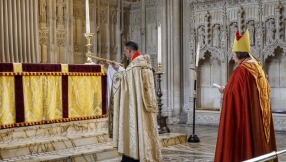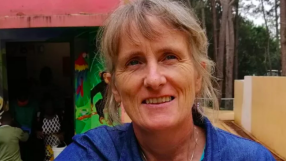
The cries of a mother still echo in Sargodha, even as the Lahore High Court sealed the fate of her 14-year-old son, Shamraiz Masih. Too poor and powerless to be present in court, she watched from a distance as the law took her child away.
In a judgment that has stunned Pakistan’s Christian community and alarmed all who value justice and the protection of children, the court accepted the coerced words of a boy over the rights of his grieving mother.
On 20 August 2025, the Lahore High Court dismissed a habeas corpus petition filed by Shamraiz’s elder brother Sahil with the support of a Christian NGO and, instead of granting custody to his widowed mother, ordered that the boy be placed in the care of his maternal uncle — a man who had himself converted to Islam years earlier and against whom the family had previously lodged a police complaint.
This ruling not only tore a child from his mother but also exposed a deeper crisis — whether Pakistan’s courts are guided by law, or by the shadow of religious bias.
At first glance, this may appear to be a simple guardianship dispute. In reality, it is anything but. The ruling risks entrenching a system where children from vulnerable Christian families can be taken from their parents, coerced into changing their religion, and then legitimised with a judicial stamp of approval.
For Shamraiz’s mother, who was hoping that justice would be done, the outcome was devastating, as she lost not only her son but also her faith in a system that failed her because she is a Christian in Pakistan.
Shamraiz is the son of a poor Christian widow. Like many children from disadvantaged backgrounds, he was not in school but working at a motorbike repair shop in Sargodha to help support his family. According to his brother, his employer began to groom and pressure him, promising a better future if he accepted Islam.
One day he went out to buy groceries and never returned home. His brother reported him missing, and the police registered a kidnapping case under Section 365. Soon afterwards, videos circulated on social media showing Shamraiz dressed in Islamic attire, declaring that he had converted of his own free will.
Not long after, he was produced before a magistrate and his statement was recorded under Section 164 of the Criminal Procedure Code. He repeated that he had not been pressured, that he had converted willingly, and that he no longer wished to live with his Christian parents.
The magistrate ignored his age and the circumstances of his disappearance, accepted his statement, and allowed him to remain with his employer, even though his natural guardian — his mother — was alive and pleading for his custody.
The family appealed the magistrate’s decision before the Lahore High Court. Instead of dismissing the earlier ruling, the High Court made only a minor modification: it ordered that Shamraiz be handed to his maternal uncle rather than his employer. On what legal basis this was done remains unclear.
To make matters worse, the family was absent from the proceedings that day. Rather than investigate their absence, the judge asked Shamraiz directly with whom he wanted to live. He replied that he wished to stay with his Muslim uncle. The court accepted this and dismissed the petition, removing the child from his mother’s custody and placing him with relatives already aligned with his forced conversion.
This outcome raises troubling questions. There is no law in Pakistan preventing a child who converts to Islam from continuing to live with his Christian family. Yet in practice, courts often act as if this were unacceptable, fearing the child might revert to Christianity. In Shamraiz’s case, the underlying message was clear: his religious conversion was given priority over his mother’s legal right to custody.
Sadly, this is not the first time that courts have issued judgments of this kind. Over the years, Christian and Hindu minors have repeatedly been declared Muslims overnight after being influenced by employers or acquaintances. Families are then told that their children no longer wish to live with them. With little education, few resources, and limited access to legal aid, poor minority families stand helpless before a justice system that seems unwilling to protect them.
The structural vulnerability of minority children is at the heart of the problem. Poverty and discrimination mean that Christian and Hindu children are disproportionately sent to work in garages, barber shops, tailoring workshops, steel and wood factories, carpet looms, and brick kilns. These are precisely the environments where children can be manipulated and exploited by adults who hold power over them.
By treating Shamraiz’s coerced declaration as a genuine “choice,” the court has set a precedent with far-reaching consequences: any employer can now take a child labourer to a magistrate, secure a declaration of conversion, and strip that child away from his or her Christian family.
The ruling is also incompatible with both Pakistani law and international commitments. Under the Majority Act of 1875, anyone under 18 is a minor and cannot make binding decisions about marriage, guardianship, or religion. The Qanun-e-Shahadat Order, 1984 allows courts to hear a child’s testimony but does not permit that testimony to override parental custody or fundamental rights.
At the international level, Pakistan is a signatory to the UN Convention on the Rights of the Child. Article 3 makes the best interests of the child a primary consideration. Article 12 gives children the right to be heard but insists their views must be weighed according to age and maturity. Article 14 recognises the child’s right to freedom of religion, but only under the direction of parents or legal guardians. By treating Shamraiz’s words as decisive, the court ignored the principle that a minor’s statement, given under coercion and without parental guidance, cannot constitute valid consent.
The Shamraiz case is a tragedy, but it is also a warning. By validating the coerced statement of a 14-year-old boy, the Lahore High Court has set a precedent that undermines both the rule of law and the rights of children. It signals to minority families that the courts may not protect them, and to employers that they can exploit and convert vulnerable children without consequence.
Pakistan must decide whether it will be a society that protects its weakest citizens or one that sacrifices them to coercion and silence. Justice for Shamraiz is not only about one boy. It is about restoring trust in the justice system, safeguarding minority families, and ensuring that no child is manipulated into abandoning their faith under the guise of free will.













